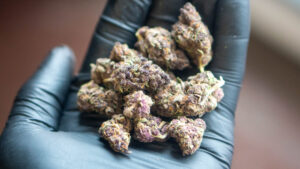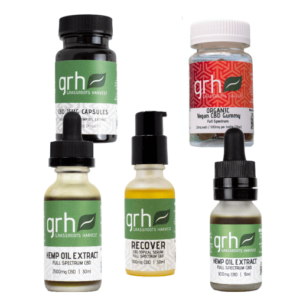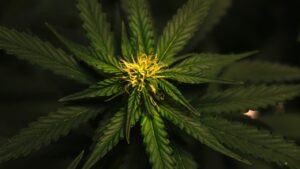According to new research, cannabidiol a.k.a CBD may have more benefits than we know. CBD has been revealed to be a formidable blocker of the SARS-CoV-2 replication process within human cells. In addition to that, a survey done also indicated that patients taking CBD were discovered to have a significant negative relationship between CBD consumption and COVID-19 infection.
New Findings in CBD and COVID-19 Research
The study was done by a team of 33 researchers at the University of Louisville and the University of Chicago. They surveyed 1,212 patients who were taking prescribed CBD. They discovered that those who were taking 100milligrams per milliliter oral doses of CBD had positive COVID-19 tests at lower rates than their counter parts in the control groups who did not take CBD. Basically, those taking CBD got COVID-19 less than those not taking CBD.
The study also indicated that all the patients were individuals who had dealt with seizure-related conditions which CBD could be prescribed to treat. Within the group, 6.2% returned a positive COVID-19 test or a diagnosis. This compares to the 8.9% of individuals within the control group. Within a smaller subset of patients who were likely taking CBD on the dates of their first COVID-19 test, the effect became more glaring. Only 4.9% of people taking CBD test positive with COVID-19 compared to the 9% within the control group.
Looking In-Depth at CBD and COVID-19
The team was led by Dr. Marsha Rosner, a professor within the Ben May Department for Cancer Research at the University of Chicago. Her team treated human lung cells for two hours with CBD before introducing SARS-CoV-2. They left them for 2 days while monitoring them for the presence of the COVID spike protein. What they discovered was the presence of CBD hinders replication of genes for the growth and spread of the virus through the body. They went on to replicate the tests on three COVID-19 variants all with the same results.
Rosner and her team kept on pushing in order to identify the mechanism through which CBD inhibited infection. They discovered a negligible effect at the point at which viruses enter cells. However, they discovered CBD to be effective at preventing protein expression in cells for up to six hours after infection and partially effective at 15 hours after infection. Their findings are also that the cannabinoid’s metabolite, 7-OH-CBD possesses antiviral effects which are non-toxic to cells. This metabolite occurs in the body when CBD processing happens within the liver and intestines) –
Rosner stresses that cannabis-derived products while are a potentially powerful public health intervention shouldn’t be a substitute for vaccinations. Instead, they should be possibly a much-needed supplement in the fight to end the pandemic.
Other Research On the Subject
This report continues a recent global breakthrough by researchers around the world regarding the role of cannabis in COVID-19. Earlier in the month, a different group of researchers at the University of Waterloo in Ontario, discovered CBD as a primer to a process called apoptosis or natural cell death. According to the research, CBD spurs on the death of infected cells. This prevents viral spread in its tracks and slowing the transmission to others.
Dr. Marsha Rosner and her team however have stressed the need to prevent the conflation of their findings with the suggestion to use recreational cannabis as a treatment for COVID-19. For example, THC could inhibit CBD’s antiviral effects, the authors note, and smoking is bad for your lungs. Without clinical trials, they also can’t recommend that people go out and buy CBD at a dispensary.
Not All CBD Is Equal
“We strongly caution against the temptation to take CBD in presently available formulations including edibles, inhalants or topicals as a preventative or treatment therapy at this time,” the authors write. “Especially without the knowledge of a rigorous randomized clinical trial with this natural product.”
Rosner notes that it’s impossible to know what CBD dosage and formula will be most effective at treating COVID-19 infection. That is, until her research moves into clinical trials on humans. After all, Rosner said, “we can only do so much in mice; we really need to do this in people.”
“We think it has a potential, both to be a preventative—so for instance, you can imagine that I’m going traveling and CBD is something that, if we can make the right product accessible, it should be widely available, it should be something people could anticipate needing,” she said. “Or you go and get tested and immediately start taking it. The hope is that it would prevent more serious disease, but we don’t know yet. And we would need a clinical trial.”
We are not doctors or medical professionals, nor do we claim this is medical advice. Our products are not to prevent, treat, or cure any disease or medical issue.
We hope this blog has helped you understand more about current research on CBD and COVID-19. Stay safe, protect yourself, and we’ll keep updating with more information as it becomes available.



